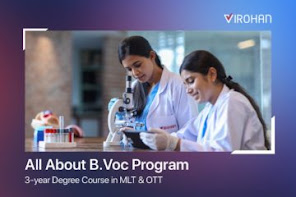Paramedical courses
After passing high school, the next few years in your life are going to be very important for your future. You need to plan out a strategy to help you get a job and also help you grow as an individual. That’s why many students these days take up particular courses that will help them land a job in the future. But what kind of particular course should you take? There are several options that you have. Each of them is not just useful but also helps you build your career.
Paramedical courses are among the most popular and recommended fields you can choose from if you want to make a career in healthcare and wellness. These courses can be taken online or offline, depending on which institute or university you enrol in.
What is Paramedical Courses?
Paramedical courses are the best
courses you can take to become a paramedic These courses are shorter than a
traditional paramedic program, and some even offer a career pathway. In
addition to obtaining the skills and knowledge needed to work as a paramedic,
you may also earn a certification in an allied health profession. Paramedical courses are designed to bridge the gap between medical knowledge and the
clinical skills required to care for patients. That’s why they’re an excellent
option for those who have already earned a degree in any field but aren’t yet
ready to start paramedic school
Top Paramedical Courses:
- DMLT- diploma in medical laboratory technology
- BMLT- bachelors in medical laboratory technology
- DOTT- diploma in operating theatre technician
- BOTT- bachelors in operating theatre technician
- DHA- diploma in hospital administration
- Emergency Medical Technician
- Radiology technician
Paramedical courses Eligibility:
Students can pursue this course after completing 10+2 from recognized boards with a minimum of 45-50% aggregate. A few institutes, such as Virohan, also allow
students from commerce and arts to pursue paramedical courses.
Job Opportunities after the paramedical course:
The paramedic is the most advanced paramedic role and often involves managing a team of EMTs. The paramedic can administer a wide range of advanced medical services, including intravenous therapy, intubation, and the administration of some medications. Additional duties of a paramedic include assisting doctors at the scene of an emergency, monitoring the condition of patients in transit, and providing advice to other medical providers as needed.
Conclusion:
Paramedical courses are a great way for non-healthcare professionals to
transition into the field. In most cases, you can complete these programs in
less than one year, significantly less than many paramedic programs
require. For those who have already earned a degree in other disciplines, these
courses are an excellent way to gain the skills and knowledge you need to work
as a paramedic.



Comments
Post a Comment